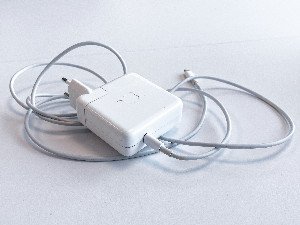Samuel Durso
O USO DA INTELIGÊNCIA ARTIFICIAL NA EDUCAÇÃO E O DESENVOLVIMENTO DE COMPETÊNCIAS DOS ESTUDANTES
Introduction
O uso da inteligÊncia artificial na educaÇÃo e o desenvolvimento de competÊncias dos estudantes. A Inteligência Artificial (IA) redefine a educação. Entenda seu impacto no desenvolvimento de competências dos estudantes, os desafios e as oportunidades para uma integração pedagógica e justa.
Abstract
Este texto apresenta análises a partir da revisão realizada para o artigo “Reflexões sobre a inteligência artificial à luz dos fundamentos da educação profissional e tecnológica”. A crescente inserção da Inteligência Artificial (IA) no contexto educacional exige reformulações no processo de ensino-aprendizagem para garantir que o desenvolvimento dos estudantes continue sendo significativo. As ferramentas de IA generativa diferem de tecnologias anteriores ao possibilitarem a realização de tarefas complexas, muitas vezes superando a produção acadêmica dos próprios estudantes. Essa transformação levanta questões sobre a manutenção das competências (cognitivas, sociais, emocionais e profissionais) em um ambiente educacional fortemente influenciado pela IA. A IA tem impacto direto no currículo acadêmico, demandando abordagens técnicas e conceituais que permitam sua compreensão em um contexto social e histórico. Especialmente na educação profissional e tecnológica, sua integração é essencial para alinhar a formação acadêmica às novas exigências do mercado de trabalho. No entanto, a dependência excessiva dessas ferramentas pode comprometer o desenvolvimento crítico e analítico dos estudantes, exigindo a adaptação das metodologias avaliativas e pedagógicas. Ao mesmo tempo, a IA pode potencializar o aprendizado, facilitando o acesso à informação, a organização de conteúdos e a personalização do ensino. No entanto, sua utilização deve ser acompanhada de uma formação crítica para mitigar riscos como vieses algorítmicos e desigualdade no acesso às tecnologias. Dessa forma, cabe às instituições de ensino e aos formuladores de políticas públicas garantir uma implementação pedagógica adequada da IA, promovendo acesso equitativo, formação continuada para docentes e diretrizes claras para sua adoção no ambiente acadêmico.
Review
The article, "O USO DA INTELIGÊNCIA ARTIFICIAL NA EDUCAÇÃO E O DESENVOLVIMENTO DE COMPETÊNCIAS DOS ESTUDANTES," presents a timely and crucial analysis derived from a review of Artificial Intelligence's (AI) implications within the educational context. It critically examines the transformative impact of AI, particularly generative AI, on teaching and learning processes, emphasizing the imperative for educational reform to ensure meaningful student development. The abstract effectively outlines the dual nature of AI, highlighting its capacity to perform complex tasks, often surpassing student output, which necessitates a re-evaluation of how core competencies (cognitive, social, emotional, and professional) are maintained and fostered in an AI-permeated environment. The paper's strength lies in its comprehensive articulation of both the opportunities and challenges posed by AI in education. It adeptly discusses how AI directly impacts academic curricula, especially within professional and technological education, by demanding technical and conceptual understanding for market alignment. While acknowledging AI's potential to personalize learning, facilitate information access, and organize content, the abstract concurrently raises significant concerns about over-reliance compromising critical and analytical thinking, the emergence of algorithmic biases, and potential inequalities in access. This balanced perspective underscores the necessity for adapting pedagogical and evaluative methodologies, advocating for a critical approach to AI integration rather than unbridled adoption. Crucially, the abstract concludes by positioning the responsibility squarely on educational institutions and public policymakers to ensure the appropriate pedagogical implementation of AI. It advocates for strategies that guarantee equitable access, continuous professional development for educators, and the establishment of clear guidelines for AI's integration into academic settings. This review suggests the article serves as an important foundational text for guiding the responsible and effective integration of AI in education, particularly in vocational and technical fields, paving the way for further discourse on ethical frameworks, curriculum redesign, and sustainable educational practices in the age of artificial intelligence.
Full Text
You need to be logged in to view the full text and Download file of this article - O USO DA INTELIGÊNCIA ARTIFICIAL NA EDUCAÇÃO E O DESENVOLVIMENTO DE COMPETÊNCIAS DOS ESTUDANTES from Educação em Revista .
Login to View Full Text And DownloadComments
You need to be logged in to post a comment.
Top Blogs by Rating
Unseen Engineers: Nanotech's B...
By Sciaria
Reclaim Your Day: Mastering th...
By Sciaria
Unmasking the Macabre: The Dar...
By Sciaria
Favorite Blog
Goodbye Chargers: The Rise of...
By Sciaria
Is Electro Music the New Class...
By Sciaria
Unlocking Life's Source Code:...
By Sciaria





